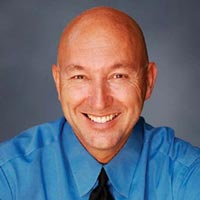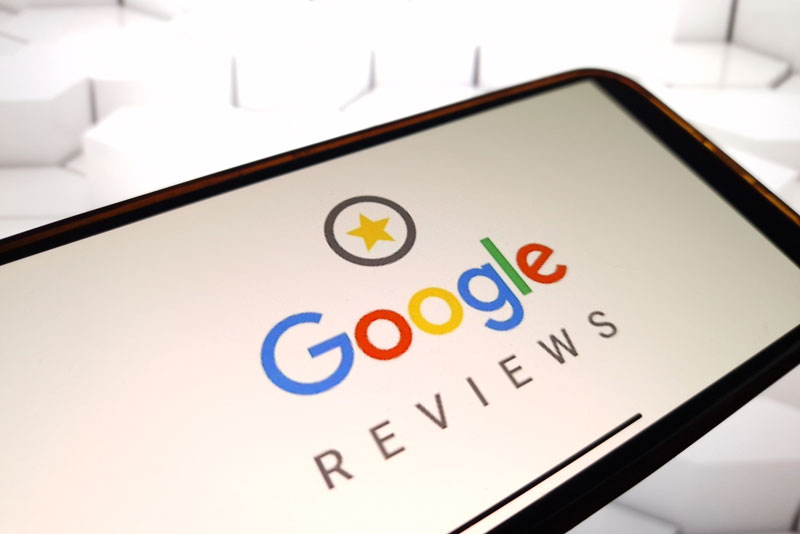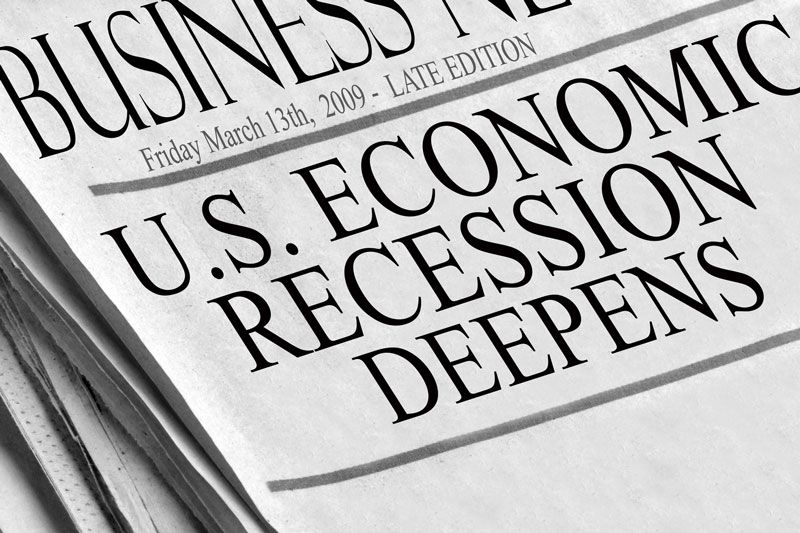Episode #323: How Google Reviews Reduce Your Dependence on PPO Plans
Listen Now
If you are in dentistry, you must have heard about Dr.Pankey. Dr. Lindsey D. Pankey was a passionate advocate of comprehensive, patient-centered dentistry and spent much of his life helping other dentists understand the happiness and fulfillment to be had in closer relationships with patients.
In this episode, Gary and Naren discuss 4 things you must know to successfully drop PPO plans! Gary applies four lessons from Dr.Pankey to drop PPO plans successfully. He also discusses why it is essential to build a practice that provides quality dentistry. Gary then explains why it’s crucial to build a relationship-driven practice.
Master Digital Marketing! Gary emphasizes how Ekwa Marketing has supported him in attracting quality patients throughout the years. If you would like to learn about how Ekwa Marketing can help your practice become thriving and profitable, you can visit,
www.lessinsurancedependence.com/mastering-dental-marketing/
Naren: Hello everyone, welcome to the less insurance dependence podcast, the official podcast of the reducing insurance dependence academy, www.rid.academy. Please consider this an invitation to become a member of RIDA as a gift from us in appreciation for your listenership. This is Naren, your co-host. Today’s topic is four things you must know to successfully drop PPO plans. Before we get into today’s topic, I have a quick announcement. Gary’s famous thriving dentist three-night MBA workshop is coming back on the 21st 22nd and 23rd of June. So, it’s three evenings, 21st of June 22nd and 23rd, nine hours of CE the website is thrivingdentist.com forward slash MBA, what Gary is going to be going through in these nine hours are the 10 elements plus the 24 systems and the way he runs it, it’s a live session the way he runs it is in the form of a workshop. What I mean by that is there are literally 10 exercises you would do over those three nights and each one of those exercises are all about how do you take what gets just covered with you and apply it to your practice. The number one feedback that we get from the attendees of the MBA workshop is that they actually act on what they’re learning the next day at work. So, what they learn on a Wednesday they’re trying it out on a Thursday. So, I think you will enjoy this. It’s probably the best value for the CE dollars you, you, know you would ever spend. It’s less than 200 dollars. So, you know check it out we do limit the number of seats. So, if the seats are still available, sign up looking forward to seeing you on the 21st.
Gary: You know Naren I’ll just amplify what you said. I’m excited about that one coming up at the end of June by a couple weeks after this episode is published, and as you mentioned I go through the 10 elements of a thriving practice and element number one is all about successfully reducing insurance dependence. So certainly, that will be of keen interest to any of our listeners of this podcast, but actually all of the 10 elements will contribute to your success in successfully dropping PPO plans and it really is the equivalent of you know a dental practice MBA. We go through so much content that you’ll have the practical equivalent of a master’s in business administration in running your dental practice. So come join us. We have a lot of fun with those. It is live-stream as Naren mentioned, meaning that you attend virtually from the convenience of your home in the office. Uh so make it inconvenient for you, but it’s done live this is not recorded it’s done live meaning that we have lots of interactive opportunities. I have lots of interactive opportunities with the attendees. So, hey come join us
Naren: thank you Gary today’s topic four things you must know to successfully drop PPO plan. I know this was inspired by your mentor, someone you met early in your career. Doctor Pankey and I think Doctor Pankey influences pretty much I think every dentist on the planet and every you know even outside of dentistry. I, I, read his book and it’s one of those books where it’s the book written by a man who had a life well-lived. I mean he not only had a wonderful life but of course he made a difference in the lives of so many others. So, I’m looking forward to those four things today that you’re going to cover that you learned from Doctor Pankey
Gary: well many, many, consider Doctor l d Pankey the father of modern day restorative dentistry and I don’t think that’s too bold a label for, for, Doctor Pankey because of the influence that he had in his career to really develop and pioneer everything related to restorative dentistry. You know before Doctor Pankey’s time dentistry was really the art of exodontia. You know if you think of what dentists did say before the 1920s what they did was essentially take teeth out and Doctor Pankey wanted to save teeth you know if a tooth was savable, he wanted to save it because he saw the devastation first hand saw the devastation of what would happen when people lost their teeth and it really set a downward spiral of not only dental health deterioration, but overall health deterioration, and it was his mother Doctor Pankey’s mother who had all of her teeth extracted at a young age. Uh she was in her early 40s when she had her teeth extracted because that was what was done those days there and it’s hard to believe that you know that that was the thinking but that was the thinking back then and when Doctor Pankey realized the devastation that his mother had experienced when she had many, many, healthy teeth you know there’s things that could have been done restoratively for her that he committed himself to never extract, so he made a commitment after he witnessed his, his, mother’s experience with having her teeth extracted and having dentures made at a young age. He made a commitment to never extract another tooth that could be saved and he followed that for the rest of his career. He’d extract a tooth if it could not be saved, but if it could be saved, he would never extract that. So, talk about a bold move and talk about someone deeply committed to values that would be Doctor L D Pankey. So I’m going to share with you four things that I learned from Doctor Pankey that will and I’m going to adapt these to our topic of this podcast which is helping you reduce insurance dependence. Here are those four things. I’ll number them so I remember to cover all four. Number one, know yourself I’ll talk about each one in more detail. Number two, know your work. Number three, know you’re patient and number four apply your knowledge. Real quickly number one know yourself number two know your work number three know your patient and number four apply your knowledge. Now let me talk about each one of those relative to our topic. Let’s start with the first one. Know yourself, know yourself near one of the frustrations I hear from a dentist who has a PPO practice where many, many, many, of their patients are PPO patients, they feel like they’re the proverbial hamster on the treadmill. So, they feel like they’ve got a pedal so fast to make the economics work because they’re giving away 45 to 50 percent to the insurance company, and many dentists if you reflect on knowing yourself they would actually like to slow down a little bit to spend a little bit more time with their patients. So, they’re really not happy jumping on that treadmill. They’re really not happy. They feel like they have to but they’re really not happy. Now if if you’re a dentist that that as far as you’re concerned all you want to do is process patients, hey then stay in the PPO networks because that that’s what you’re doing to its extreme you’re processing people and hey there are some people that that if they say no, hey frankly Gary, I don’t really care about people. I I just want to have a body in the chair and do some dentistry. I don’t think those are our listeners, Naren?
Naren: yeah
Gary: I don’t think those are our listeners
Naren: it’s like I mean you know you have seen this right we call it the rat race, right, people have these huge bills expensive cars and then they have to keep a job just to make you know one more month go by, right, and they feel like they don’t have a choice and I guess unfortunately people on PPO are kind of in that same thing. They feel like they don’t have any choice. So, they can’t live their full life they can’t live the life they want I mean they can’t do why they went to enter school to do which is to serve people, take care of people, do amazing high quality work you know as opposed to just you know be that treadmill you know the, the, the, person on the treadmill just running, running, running.
Gary: I mean if you’re if and again I’m I will try to say this without judgment. It might be hard for me to do this but I try to say but if you’re the kind of person that just you know wants a body in the chair want to process people that dentistry is just a job for you, then, hey, stay in the networks it’s fine it’s easiest way to do it stay in the network because that’s what you got but I I think most of our listeners and many dentists long for more than that
Naren: so, what you are saying is
Gary: They want to make a difference, they want you to know they want to make a difference. Uh they want to leave a legacy and that’s what I mean by knowing yourself, put you know think about which category are you in are you a dentist that looks at it as just a just a decent job or are you someone that wants to leave your mark and make a difference. So, number one, don’t know yourself. Number two: know your work, know your work. You know one thing we haven’t talked a lot about on this podcast Naren, and we need to is that the foundation of any successful dental practice is quality dentistry
Naren: right
Gary: if you do not do quality dentistry the entire practice is built on a foundation of quicksand because it will come back and bite you, you know, inevitably you will have failures you’ll have redo’s you’ll have remakes you’ll have warranty work and that is a frustrating circle, you know, so again no know your work and I think I know our listeners I’ve gotten to know our listeners through contact many have attended our MBAs and our master classes and we’ve had them in webinars and I’ve responded to them by email and other communication, I feel like I know our listeners, and I think our listeners strive to do the best dentistry they possibly can and think about it for a minute. Does the dental insurance is a dental insurance company a partner with you in helping you do your best dentistry?
Naren: no, they are not because
Gary: In fact you’re, they’re, they’re, really by virtue of the way it works economically, you’re they’re working against you that way, and you know in terms of the quality materials in terms of the quality of your technology that you’re using, in terms of you know taking the time to do everything right, you’re really work they’re working against you. Um so if you really know your work and, and, you’re a disciple of quality dentistry, one of the best ways to ensure that you do that is to reduce your insurance dependence. Let’s talk about number three, know your patients. So important because you know we talk about our six steps to successfully drop PPO plans and one of those steps is to elevate the relationship driven aspect of your practice and the way we do that is we know our patient and again think about let’s run it through that filter. Does the PPO plan want you to slow down and, and, and, get to know your patient?
Naren: no
Gary: do they do they have any interest in that
Naren: no
Gary: I think the answer is, is, is, a universal no, no, because you’ve got to process so many more patients through your practice
Naren: yeah, I love that
Gary: no, you don’t you don’t get to slow down
Naren: yeah, I remember you sharing the data that back in 1970 or 68 they paid a thousand dollars right and today they still pay a thousand dollars
Gary: that was the annual award
Naren: The annual award
Gary: It was a thousand bucks that, you know, remember when, when, the first down insurance company was delta dental of California, it was created by dentists for dentists, and it was very noble, very noble. They had very bold objectives to help more people go to the dentist and so when they set up that thousand-dollar annual award, there was some economics in terms of how the policy would work but that covered a lot of dentistry. You know the average crown in 1968 was 150 dollars. Now the 50 coverage was the same then that it is now for a crown, so on a crown a 150-dollar crown, it meant the delta paid 75 and the patient paid 75. So, if they had a mouth, let’s say they’ve been away from the dentist and then neglected their care and they needed a lot of care. How many crowns, let’s assume they needed those, how many crowns would one year’s coverage pay? Uh well 75 you know a thousand divided by 75 I think the number is between 13 and 14. Did I get the number right, Naren?
Naren: that is correct Gary
Gary: 13 point something
Naren: Right
Gary: I’m pretty good with the math but it’s 13 point something now that’s not a full mouth reconstruction but that’s a lot of dentistry
Naren: yeah
Gary: And today it’s the same thousand dollars off and now sometimes some of the plans will pay 1200 or 1500. Well, the difference between a thousand and fifteen hundred over those 46 years between then and now doesn’t cover very much
Naren: right
Gary: so, if it’s a thousand you know that covers one tooth maybe if it doesn’t need a root canal if it needs a root canal, we’re out you know you’re above the annual limit
Naren: right
Gary: so, think about that now let’s go to the fourth detail that Doctor Pankey shared, apply your knowledge. Now that’s something I want to amplify right here. I think this is episode 191 of the less insurance dependence podcast. Is that correct Naren?
Naren: that is correct, Gary yes
Gary: So that means we’ve got 191 published episodes. Uh all about practical tips to successfully reduce insurance and if you’re new to the podcast let me invite you to go back and download to your heart’s desire. They’re all free, we do this for you for free. Uh they’re, they are great resources for you and your team, but there’s a difference between knowledge and results. You can know something but until you apply your knowledge, you’re not going to get the result. You know I like to say that education without application is merely entertainment. Now Naren I would like to think that our podcast is entertaining. I would like to think that, but I’m more interested in getting the results for you so take Doctor Pankey’s advice apply your knowledge apply what you know start down the path to successfully reduce insurance dependence. If I can close on a very motivational point, one of the things I do with our coaching clients and remember six, reducing insurance does not necessarily mean success does not necessarily mean that you have to become completely fee for service. In other words, success could be measured in many formats. For example, maybe you start out with 14 or 15 plans and you get down to one or two and maybe there’s a decision to keep those one or two plans for very pertinent reasons in your practice and in your patient base and in your community. Well your practice would be a whole lot better to have one or two plans than 14 or 15. Well but I will say if your goal is to go all the way and be for fee for service I’m going to be your biggest cheerleader, but one of the things I do with all of our coaching clients is after we have reached the finish line, which is either fee-for-service or, or, radically reduced insurance dependence, I do a debrief with them and we look at it we do it virtually, we do it by zoom and I ask the client to come to that meeting with data. I want to know how many patients they kept, that were in network when they went on a network by the way those results those zoom meetings are a celebration because they keep way more patience than they ever imagined and the last question, so if any of you become a coaching client well I’ll do this with you the last question I ask is doctor knowing what you know now in this process that we’ve been through, do you have any regrets, and every time I get the same answer. Gary, the only regret I have is I didn’t do it sooner. So, there’s your motivation to get started on this journey, apply your knowledge, apply your knowledge. Doctor Pankey was very, very, wise. Know yourself, know your work, know your patient, apply your knowledge/ hey I want to circle back to your announcement at the very beginning. Coming up June 21st 22nd and 23rd is our next thriving dentist MBA workshop live stream workshop. Come join us. The first two elements I go through 10 of those but the first one is successfully reducing insurance dependence, the second one is master marketing. We want to master marketing in the year 2022. By the way, I’ll give you a shortcut that follows in my lead in terms of what I did at my lifesmiles practice when we work with EKWA. Your work helps us master digital marketing. By the way if any of our listeners of the less insurance dependence podcast would like to schedule a marketing strategy meeting, you can simply go to www.ekwa.com , E-K-W-A dot com backslash MSM that stands for marketing strategy meeting. Ekwa.com backslash MSM. Hey on that note, let me take a minute and say thanks Naren thanks to you and your team for all that you do to support life smiles and my clients much appreciated and also want to thank our listeners. Um thank you for the privilege of your time Naren and I look forward to connecting with you on the next less insurance dependence podcast.
 One of Gary's most significant achievements as a dental practice management coach is transforming his own practice, LifeSmiles, from one that was infected with PPO plans, no effective marketing strategy, and an overhead of 80% to a very successful dental practice that is currently one of the top-performing practices in the US.
One of Gary's most significant achievements as a dental practice management coach is transforming his own practice, LifeSmiles, from one that was infected with PPO plans, no effective marketing strategy, and an overhead of 80% to a very successful dental practice that is currently one of the top-performing practices in the US.
 As CEO of Ekwa Marketing, Naren has over a decade of experience working with dental practices and helping them attract the ideal type of patients to their practices. It is his goal to help dentists do more of the type of dentistry they love with the help and support of effective digital marketing.
As CEO of Ekwa Marketing, Naren has over a decade of experience working with dental practices and helping them attract the ideal type of patients to their practices. It is his goal to help dentists do more of the type of dentistry they love with the help and support of effective digital marketing.



